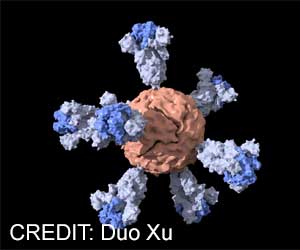“We have found that bacteria that grow on and in you make specific molecules that can inhibit, at least in a laboratory setting, the cell-based viral infection of SARS-CoV-2, and the molecules appear to do that by several different mechanisms,” said study principal investigator Sean Brady, Ph.D., professor and head of the Laboratory of Genetically Encoded Small Molecules, at the Rockefeller University, New York City.
The COVID-19 pandemic has highlighted the need to identify additional antiviral small molecules to complement existing therapies.
While increasing evidence suggests that metabolites produced by the human microbiome have diverse biological activities affecting the human host, there is comparatively little information on the metabolites’ antiviral properties.
In the new study, researchers used a cell-based SARS-CoV-2 infection assay to screen metabolites from a sample of bacteria from the human microbiome. They identified 3 bacterial metabolites capable of inhibiting SARS-CoV-2 infection: an adenosine analogue, tryptamine and a disubstituted pyrazine.
The identified molecules display structural similarities to synthetic drugs that have been explored for the treatment of COVID-19.
“It was intriguing that of all the chemistries available, the metabolites we uncovered from the microbiome all bore similarities to clinically-relevant antivirals,” said Frank Piscotta, Ph.D., lead author on the study and a post-doc in the Laboratory of Genetically Encoded Small Molecules.
These molecules could serve as starting points for the development of new antivirals. In addition, researchers could deliver the antiviral-producing bacteria as a therapeutic intervention.
The discovery of structurally diverse metabolites with anti-COVID-19 activity from screening a small fraction of the bacteria reported being associated with the human microbiome.
This suggests that continued exploration of phylogenetically diverse human-associated bacteria is likely to uncover additional small molecules that inhibit SARS-CoV-2 as well as other viral infections.
Source: Medindia



